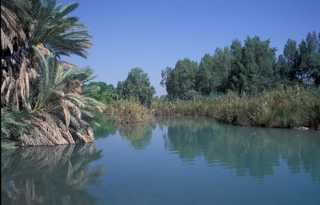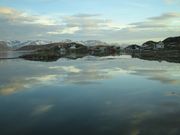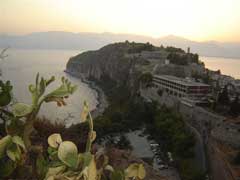 Launch of Water Quality for Ecosystem and Human Health 2nd Edition
Launch of Water Quality for Ecosystem and Human Health 2nd Edition
Today in Lodz, Poland, UNEP’s GEMS/Water Programme has launched a new version of Water Quality for Ecosystem and Human Health, 2nd Edition. The purpose of the new edition is to introduce the basic concepts of water quality and how it is related to ecosystem and human health; and to present an overview and assessments of current and upcoming global water quality issues with examples from around the world. It also includes a new chapter highlighting how ecohydrology can serve to help achieve the Millennium Development Goals on water and sanitation. The target audience includes academia, research scientists, and water practitioners, and can serve as a background to water assessments being conducted at regional and global scales.
The launch of Water Quality for Ecosystem and Human Health, 2nd Edition is taking place at the International Conference - Ecohydrological Processes and Sustainable Floodplain Management this week at Lodz.
Printing and distribution of the report was made possible by the European Regional Centre for Ecohydrology and the Interacademy Panel on Water.
The data and analyses presented in the book are derived almost entirely from GEMStat, the global water quality database accessible at www.gemstat.org. These data are a vital contribution to monitoring progress towards meeting the Millennium Development Goals and World Summit on Sustainable Development targets on water and sanitation. Indeed, there is evidence that the quality of water resources is improving in some parts of the world. In some cases, this trend is directly linked to governmental policies and legal mechanisms designed to remediate environmental degradation. There is evidence that successful results can be achieved in developed and developing countries alike.
The key messages arising from the report are:
1. Aquatic ecosystem and human health depend on the physical, chemical and biological composition of water. Human activities have the greatest impact on the quality of water resources, even in remote areas;
2. Impaired aquatic ecosystem health can lead to impaired human health and economic decline, as a result of changes in biological productivity, community species shifts, chemical and microbial contamination, and physical alterations to a water body;
3. Restoration of some impaired aquatic ecosystems has been demonstrated to varying degrees in different parts of the world, including damage caused by acidification and eutrophication;
4. Climate variability, biotic invasions and the introduction of new chemicals and microbes to water bodies continuously pose new threats to aquatic ecosystem health that must be addressed by regulatory authorities at local, national and global scales;
5. Ecohydrology, as a component of Integrated Water Resource Management, presents an emerging opportunity to achieve the water and sanitation MDGs; and
6. Baseline monitoring data for aquatic ecosystems is a priority. Long-term monitoring is also required to track the effectiveness of policies and interventions.
The future of water quality at local, regional, and global scales depends on investments of individuals, communities, and governments at all levels to ensure that water resources are protected and managed in a sustainable manner.
The 130 page report includes over 40 figures, an extensive glossary, as well as an overview of water quality standards and guidelines from national and international sources.
Water Quality for Ecosystem and Human Health 2nd Edition is available in paperback form for $25 per copy, and will be available in PDF format at http://www.gemswater.org/publications/index-e.html.
For more information about ERCE and the floodplains conference, visit http://www.erce.unesco.lodz.pl/index.php?id=122&lev=1&t=2&nid=50
For more information about IAP Water Programme, visit http://www.iapwater.org/
| Contact information |
Sabrina Barker (UNEP-GEMS/Water Programme) ; Vladimir Smakhtin ((IWMI) ; Carmen Revenga (TNC) or Richard Robarts (UNEP-GEMS/Water Programme)
(email: sabrina.barker@gemswater.org) |
|---|---|
| News type | Inbrief |
| File link |
http://www.gemswater.org/publications/index-e.html |
| Source of information | GEMS/Water |
| Subject(s) | WATER QUALITY |
| Geographical coverage | International |
| News date | 26/05/2008 |
| Working language(s) | ENGLISH |
 you are not logged in
you are not logged in





